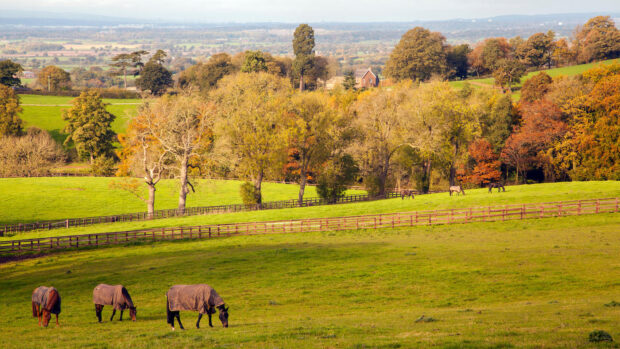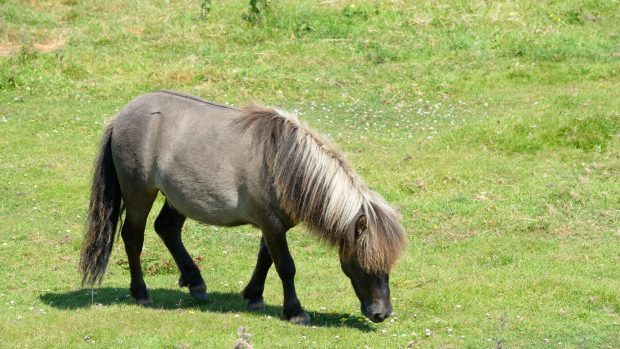As the way horses are managed changes during the Covid-19 pandemic, owners are urged to be alert for early signs of laminitis
Owners have been reminded to be aware of laminitis, as more horses are turned away owing to the coronavirus pandemic.
With social distancing measures and movement restrictions in place, equestrian bodies have encouraged owners to keep visits to their horses to a minimum and consider increased turnout – but to remain aware of horses’ weight.
Lucy Grieve, member of the British Equine Veterinary Association’s ethics and welfare committee, told H&H there is a need to do “the best we can”.
“The way we manage our horses will have to change for the short term at least. In the interest of human health and saving lives, it may be best to consider turning away and roughing horses off to minimise the human interaction required in looking after them,” she said.
“Some will be worried about their horse or pony’s weight, and in particular the risk of laminitis. Any horses carrying excess fat in the form of fat pads you can see, or fat in the abdomen, which you cannot see, is at risk even if they have no history of laminitis.”
Ms Grieve added owners should speak to their vets and farriers for advice if they can, and consider “buddying up” with other owners to share duties and checks.
“Trying to find a way that keeps everyone as safe as possible is paramount and we must all be understanding and considerate to each other,” she said.
Farrier Daniel Bennett AWCF CertEd told H&H owners must remain mindful of grass growth following a mild and wet winter, adding that many horses are already overweight.
“If we’re not careful this could be a problem,” he said. “You have to be sensible about this; if your horse is going out to grass stop feeding hard feed or if you need to, have them on the right feed.
“Keep an eye on your horses’ weight and if necessary get some electric fencing and manage the grass situation.”
Continued below…
You may also be interested in…

Laminitis: how to spot the signs, plus treatments and ways to prevent it

New guidance on caring for horses during coronavirus lockdown
Equestrian bodies have attempted to answer riders’ questions surrounding riding and caring for horses under the tighter restrictions

Subscribe to Horse & Hound magazine today – and enjoy unlimited website access all year round
World Horse Welfare CEO Roly Owers said it is imperative to remember laminitis is an issue all year, not just in spring.
“The pandemic is creating huge challenges, not least how we manage and care for our horses. For many the best course of action could be to turn their horses out to grass and, of course, we certainly need to be mindful about the risk of laminitis,” he told H&H.
“Making changes to horses’ management does need to be made as steadily as possible, but most healthy horses will adapt easily with no ill effects.”
Mr Owers added any horse turned out or not receiving its normal exercise should have its weight monitored using body condition scoring or a weightape.
“This gives a good early indication of any changes and allows adjustments to be made to help prevent problems,” he said.
Would you like to read Horse & Hound’s independent journalism without any adverts? Join Horse & Hound Plus today and you can read all articles on HorseandHound.co.uk completely ad-free




